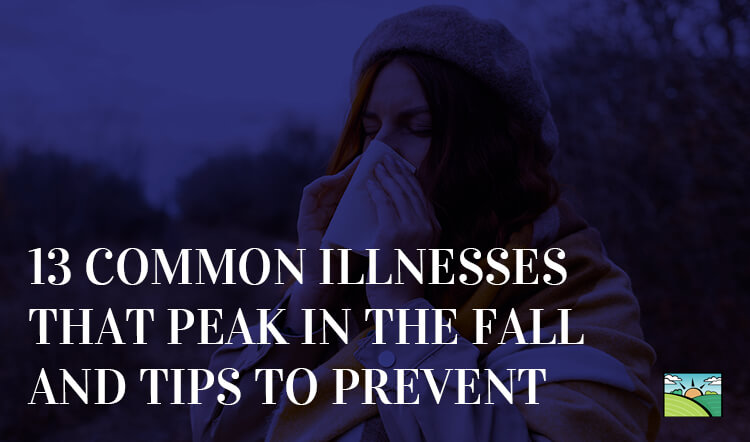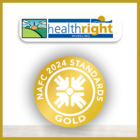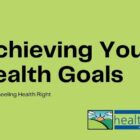As the vibrant colors of summer transition into the warm hues of autumn, many of us look forward to cooler temperatures, cozy sweaters, and pumpkin-spiced everything. However, the fall season also brings with it a unique set of health challenges.
At Wheeling Health Right, we understand the importance of staying healthy year-round, and that’s why we’re here to help you navigate the common illnesses that tend to peak during the fall and provide you with practical tips to prevent them. Let’s dive in and ensure you have a healthy and enjoyable autumn!
Influenza (Flu)
The flu season typically starts in the fall and peaks during the winter months. Influenza is highly contagious, but you can reduce your risk by getting a flu shot. It’s one of the most effective ways to protect yourself and those around you.
Common Cold
Cooler temperatures and increased indoor gatherings can lead to more common colds. Practice good hand hygiene, maintain distance from sick individuals, and consider wearing a mask in crowded settings to reduce your risk.
Allergies
Fall allergies, often triggered by ragweed and mold spores, can cause sneezing, congestion, and itchy eyes. Keep windows closed, use air purifiers, and take antihistamines as recommended by your healthcare provider.
Seasonal Affective Disorder (SAD)
Some individuals experience depression or mood changes during the fall and winter months, known as Seasonal Affective Disorder. Exposure to natural light and regular exercise can help alleviate symptoms.
Asthma Exacerbations
Fall allergies can worsen asthma symptoms. Keep your asthma under control by following your prescribed medications and avoiding allergens. Consult your healthcare provider for an asthma action plan.
Hand, Foot, and Mouth Disease
This viral illness often affects children but can occur in adults too. Good hand hygiene and avoiding close contact with infected individuals can reduce the risk of transmission.
Lyme Disease
Ticks are more active in the fall, increasing the risk of Lyme disease. When spending time outdoors, wear long sleeves, use insect repellent, and conduct thorough tick checks.
Respiratory Infections
Respiratory infections like bronchitis and pneumonia can become more prevalent as the weather cools. Stay warm, practice good respiratory hygiene, and avoid smoking to protect your lungs.
Gastroenteritis (Stomach Bug)
Cooler temperatures can lead to more indoor gatherings and the potential for the spread of stomach viruses. Practice good hygiene, especially when preparing and sharing food. Symptoms include nausea, vomiting, abdominal pain, and diarrhea.
Mononucleosis (Mono)
Mono, often called the “kissing disease,” spreads through close contact with an infected person’s saliva. Avoid sharing drinks or utensils, and practice safe hygiene.
Sinusitis
Fall allergies can lead to sinusitis, causing facial pain and congestion. Stay hydrated, use saline nasal sprays, and consider allergy medications under medical guidance.
Handwashing-Related Dermatitis
Frequent handwashing is crucial to prevent illness, but it can lead to dry and irritated skin. Use mild soap, moisturize regularly, and consider using hand sanitizers when soap and water are not available.
Tips to Prevent Fall Illnesses:
- Get Vaccinated: Ensure you’re up to date on recommended vaccinations, including the flu shot.
- Practice Good Hand Hygiene: Wash your hands frequently with soap and water for at least 20 seconds.
- Maintain a Healthy Diet: Eat a balanced diet rich in fruits and vegetables to support your immune system.
- Stay Active: Regular exercise can boost your immune system and help combat seasonal mood changes.
- Stay Hydrated: Proper hydration is essential for overall health and can alleviate some cold and flu symptoms.
- Manage Stress: Practice stress-reduction techniques like yoga, meditation, or mindfulness.
- Adequate Sleep: Aim for 7-9 hours of quality sleep per night to support your immune system.
- Stay Informed: Keep an eye on local health advisories and guidelines for staying healthy during the fall.
- Stay Warm: Dress appropriately for the weather to avoid cold-related illnesses.
- Avoid Close Contact: If you’re feeling unwell, stay home to prevent spreading illness to others.
- Ventilation: Ensure good ventilation in indoor spaces to reduce the risk of airborne infections.
- Follow Medical Advice: If you have underlying health conditions, follow your healthcare provider’s advice for staying healthy in the fall.
At Wheeling Health Right, we’re committed to the well-being of our community. If you have any health concerns or need assistance, don’t hesitate to reach out to us. We’re here to provide quality healthcare services and support to ensure you have a healthy and happy fall season.
Remember, staying healthy in the fall is all about proactive prevention and self-care. By following these tips and being mindful of potential fall illnesses, you can enjoy the beauty of autumn while staying in the best of health. Here’s to a wonderful and illness-free season!




